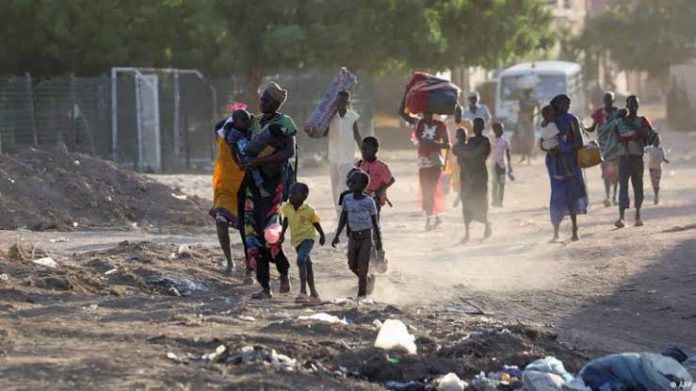The United Nations High Commissioner for Refugees (UNHCR) revealed that between 60,000 and 90,000 individuals have sought refuge in Chad from Sudan since the outbreak of violence last month.
With the conflict ongoing, the number of displaced people is expected to rise further, with over 250,000 individuals having already crossed the borders into neighboring countries.
During a four-day visit to Chad, Raouf Mazou, UNHCR’s Assistant High Commissioner for Operations, expressed concern over the situation, particularly emphasizing that nearly 90% of the newly arrived refugees are women and children.
Many have been forced to take shelter under trees in makeshift structures with limited access to essential services.
As the rainy season approaches, urgent action is needed to relocate the new arrivals to nearby refugee camps, stated Mazou in a released statement in N’Djamena.
This step is crucial to ensure their safety and well-being.
The recent influx of refugees has compounded the existing challenge faced by Chad, which was already hosting approximately 600,000 Sudanese refugees who had fled previous conflicts.
The total number of refugees in Chad now stands at nearly 700,000, as highlighted by the UNHCR.
Consequently, the organization is urging the international community to provide increased support to those displaced by the ongoing conflict in Sudan.
In addition to the refugee crisis, the United Nations World Food Programme (WFP) recently announced a requirement of $162.4 million to assist the Chadian government in addressing the urgent food needs of 2.3 million people.
The funding is crucial to ensure the provision of essential sustenance to those affected by the crisis.
The situation remains precarious as violence continues in Sudan, necessitating immediate action to protect and support those who have been forced to flee their homes.
The UNHCR and other humanitarian agencies are working tirelessly to provide aid and ensure the well-being of the displaced population, but further assistance from the international community is essential to alleviate their suffering.










